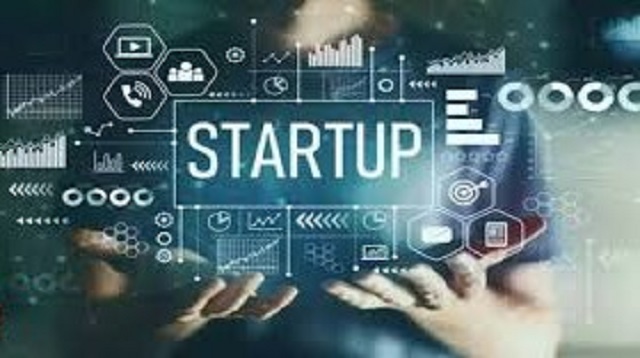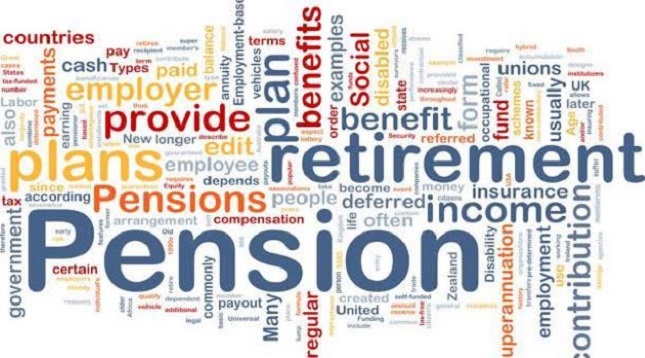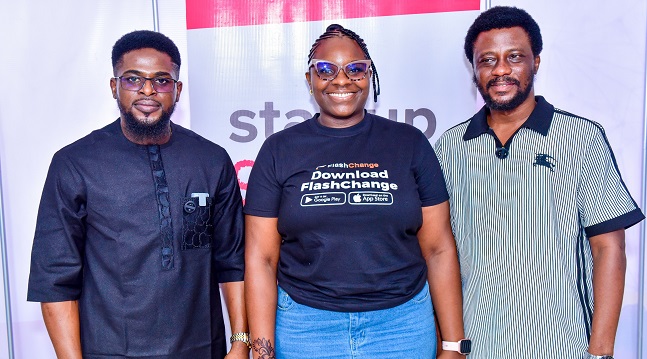News
Find Out Who to Vote for with Orodata’s MyCandidate Platform

Nigerians are eager to make a decision on who will lead their country for the next four years as the general election day approaches.

One key observation is that the news and social media have been dominant with chatter about the major Presidential contenders, even though they are not the only ones running.
Hardly would one see a major discussion on the other candidates contesting for seats in the Senate and House of Representatives where laws are made and the president is checked.
And this leaves a huge gap on the identities of these candidates, and the abilities of the citizens to make educated choices.
The very same holds true for the House of Assembly, Governorship, and Sub-national elections. About 11 states of the Federation are holding the governorship elections, but again, not many are aware of the states and the candidates.
Nigerians have benefited less from this practice than they have from it. While these contenders remain hidden behind the shields of their political party, Nigerians have a right to know who is running for parliamentary seats, and what advancement they are willing to bring.
This is why Orodata Science and Open Cities Lab created the MyCandidate portal (https://mycandidate-nigeria.opencitieslab.org/), which allows Nigerians to learn more about every candidate across all levels and states. The platform has two main components; ‘Locate me’ and ‘Address search’.
Users are able to leverage their location, state, or local government to discover a list of all the candidates contesting in their area and be informed. With the “Locate me” button on the website, the result is instant.
However, with the second feature, a user only needs to start typing the name of their local government and a list will appear, from which they can make a selection to see a list of candidates for all tiers of elections.
MyCandidate includes an embed code, a segment of HTML code that enables users to insert the website’s content into another website. You can copy and paste this code onto any website that accepts HTML.
This embed code can be used by online media, civil society, and other institutions to add MyCandidate to their own websites and provide this data to their own communities.
Orodata science is renowned for enhancing the way people and organizations use data to address pressing societal issues and advance progress. This project aims to bridge the information gap between voters and candidates while also assisting journalists and civil society groups in their efforts to monitor each candidate’s development following elections.
MyCandidate Nigeria is an open-source platform and relies on the extensive data provided by the Independent National Electoral Commission (INEC) and verified information sourced from the media. In addition to giving crucial details about each candidate, it also gives access to the Google search engine for more data.
The program lead, Uche Oti, believes that bringing the same initiative before the elections in Nigeria will have an impact on voters’ knowledge and enable them to make better decisions about who deserves their votes. MyCandidate, which was piloted by Open Cities Lab in South Africa, saw great success, according to Uche Oti.
“In order to be heard at the 2023 general elections, MyCandidate Nigeria is a crucial tool.
All individuals are urged to embrace this platform and make an educated decision regarding who will serve as their leader for the ensuing four years. Citizens can feel confident in their voting choices with MyCandidate Nigeria because they have the knowledge and resources needed to make an informed decision ” he said.
News
AfDB Supports Francophone Africa Start-ups with €6.5M

The African Development Bank Group last week approved an investment of €6.5 million in the Saviu II fund in order to support technology start-ups through their seed phase and first institutional fundraising, mainly in French-speaking Central and West Africa.

The Bank will invest €4.5 million as equity and €2 million as a first-loss hedging tranche on behalf of the European Commission, under the Boost Africa Programme.
This participation of the Bank Group will enable the Saviu II fund to give priority to companies with a strong technological or digital component.
Saviu II, the second investment vehicle of Saviu Partners, plans to invest between €500,000 and €3 million in about 20 technology or technology-oriented business-to-business start-ups in the seed phase or carrying out first institutional fundraising.
The Saviu II venture capital fund aims to make at least 60% of its commitments in the French-speaking countries of West and Central Africa: Côte d ‘Ivoire, Cameroon, Benin, Senegal, Togo, Burkina Faso and Mali.
The fund can also co-invest in promising technology companies in East Africa that have a strong team and business model, and whose strategy includes entering the market in French-speaking West African countries and establishing a strong presence there.
In addition, the fund will devote a dedicated envelope to pre-seed investments, focusing on minority equity investments, usually in co-investment with studios, incubators or other ecosystem partners.
News
TeamApt, Awabah Partner to Boost Pension Drive for Nigerians

TeamApt Ltd., a subsidiary of Moniepoint Inc. and a leading financial infrastructure provider, has partnered with Awabah, the National Pension Commission’s first licensed Accredited Pension Agent, to expand pension access for millions of Nigerians in the informal economy.

The partnership was unveiled in Abuja at the launch of Awabah’s agent licence, themed “Building Financial Resilience: Securing the Future with Personal Pensions.”
At the event, PenCom Director-General Omolola Oloworaran underscored a major imbalance in Nigeria’s pension system, noting that while pension assets have grown to over ₦27 trillion, the benefits remain largely concentrated among formal-sector workers. She observed that most informal-sector workers—who make up the majority of Nigeria’s workforce—still retire without any form of savings.
This challenge is further highlighted in Moniepoint’s 2025 Informal Economy Report, which reveals that although 65 per cent of informal businesses recorded revenue growth, most lack the structural resilience required for long-term sustainability and succession.
Through the partnership, TeamApt—a Central Bank of Nigeria–licensed switching and processing company—will enable seamless pension registration and contributions for Awabah users via its Direct Debit service on Point of Sale (POS) terminals nationwide. Informal workers can enrol for personal pensions, tokenize their cards, and automate periodic contributions in just a few steps.
The initiative simplifies pension savings by turning what was once a complex, bureaucratic process into a routine transaction, enabling business owners and workers to build financial security beyond their productive years.
“When we started Awabah, we were driven by one core belief—that no African worker should be one accident or crisis away from poverty,” said Tunji Andrews, Chief Executive Officer of Awabah.
“This partnership with TeamApt allows us to scale that vision. By leveraging their Direct Debit service and extensive POS network, we are meeting informal workers where they already operate—markets, workshops, kiosks, and roadside businesses. With small, regular contributions, workers can now access personal pensions bundled with health, accident, and life insurance,” he added.
TeamApt CEO Dennis Ajalie said the collaboration aligns with the company’s long-standing mission to power Nigeria’s informal economy.
“At TeamApt and Moniepoint Inc., our focus has always been on enabling the informal sector,” Ajalie said. “Today, working within our licence framework and alongside our co-subsidiary, Moniepoint Microfinance Bank, we operate across all 774 local government areas, serving millions of Nigerians who drive economic activity.”
He described the partnership as a critical step toward pension inclusion, adding that it demonstrates how financial infrastructure can deliver real, long-term value to everyday Nigerians.
Ajalie also praised PenCom’s leadership for creating an enabling environment for innovation, noting that Oloworaran’s reforms have opened the door for partnerships capable of delivering sustainable pension coverage for informal workers.
The initiative is powered by TeamApt’s robust financial technology ecosystem, which has supported banks, fintechs, and financial institutions for more than a decade. Its omni-channel Direct Debit service allows automated recurring collections—such as pension contributions, subscriptions, and repayments—directly from customers’ bank accounts with their consent.
Beyond pensions, the platform enables informal workers to automate investments in the capital market, access healthcare through HMOs, and secure insurance coverage for themselves and their families—extending financial security far beyond retirement.
News
FlashChange CEO, Bidemi Oke, Urges Startups to Build Strong Governance Structures Early

FlashChange, Africa’s fast-rising digital asset management and cross-border payment platform, had its Chief Executive Officer, Bidemi Oke, featured as a speaker at the latest edition of Startup Grind Lagos, one of the largest global communities for entrepreneurs and innovators.

Held on Saturday, February 28, 2026 in Lagos, the event convened founders, investors, developers, and ecosystem builders for a candid conversation on innovation, resilience, and scaling technology ventures in emerging markets. Oke shared insights from FlashChange’s journey building a trusted digital finance brand in Nigeria’s evolving fintech and crypto landscape.
During the fireside chat, Oke shared practical lessons from scaling FlashChange in a highly regulated and fast-changing environment. He emphasized the need for startups to build strong governance structures early, maintain open communication with regulators, and design solutions that solve real economic pain points, particularly around remittances, foreign exchange access, and digital asset utility.
“In markets like Nigeria, trust is not a marketing slogan, it is the product,” Oke said: “For us at FlashChange, growth has always been tied to transparency, compliance, and delivering consistent value to users navigating cross-border payments and digital assets.”
He also addressed the broader opportunity within Africa’s fintech ecosystem, noting that innovation on the continent must balance speed with responsibility.
“The next phase of African fintech will be defined not just by who grows fastest, but by who earns and keeps user confidence. Founders must think beyond valuation headlines and focus on building institutions, he added”
“Innovation is important, but sustainability is critical. At FlashChange, we are building for the long term” Oke noted.”
The session featured an interactive Q&A session where participants engaged him on several topical issues. He underscored the importance of proactive communication, especially in industries where misinformation and volatility can quickly erode public confidence.
Startup Grind Lagos Director, Mayokun Adeoti while commending Oke for offering practical, founder-focused insights, he said, “His experience provides valuable lessons for startups building in complex regulatory environments.”
FlashChange has continued to position itself as a reputable voice within Nigeria’s fintech and digital asset ecosystem, advocating for regulatory clarity, financial literacy, and secure transaction infrastructure. The company’s participation in Startup Grind Lagos reflects its commitment to contributing meaningfully to conversations shaping the future of innovation in Nigeria.
The Startup Grind Lagos appearance marks another milestone in FlashChange’s thought leadership journey and reinforces its growing role in Nigeria’s digital finance ecosystem.

 E-Financial1 day ago
E-Financial1 day agoMutual Benefits Assurance Reaffirms Full Regulatory Compliance, Enhanced Governance

 E-Financial1 day ago
E-Financial1 day agoIran-Israel-US Conflict and CBN’s FX Gains: A Stress Test for Nigeria’s Monetary Stability

 General News1 day ago
General News1 day agoSERAP Asks FCCPC to Investigate Google, Meta, Others over Alleged Rights Abuses

 General News1 day ago
General News1 day agoJAMB Uncovers AI-Driven Fraud Targeting UTME Candidates, Warns Parents

 News1 day ago
News1 day agoFlashChange CEO, Bidemi Oke, Urges Startups to Build Strong Governance Structures Early

 News1 day ago
News1 day agoTeamApt, Awabah Partner to Boost Pension Drive for Nigerians

 General News1 day ago
General News1 day agoCapelli Institute Commits to Advancing Trichology in Nigeria

 E-Financial1 day ago
E-Financial1 day agoReps Mull Commission to Regulate Fintech Operations















